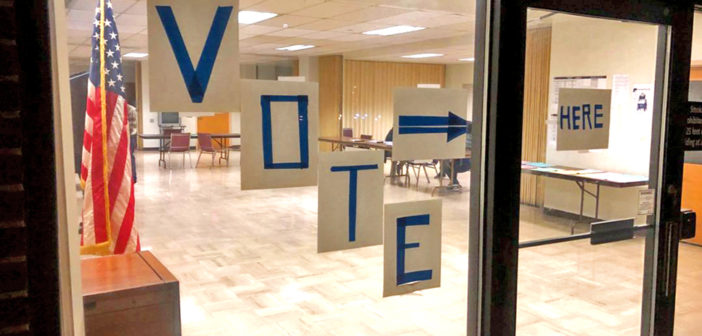As of March 20, seven upcoming primaries have been postponed due to the rapid outbreak of COVID-19. These states include Connecticut, Georgia, Kentucky, Indiana, Louisiana, Maryland and Ohio.
“In my view, postponing elections, even primaries, ought to be a situation of last resort in most cases,” said Brian Fife, a political science professor and chair of the department, in an email. “What may happen in the future with primaries, in particular, is that state legislators and governors should carefully devise contingency plans in case of a dire health situation such as the current one.”
In the email, Fife said this week, Arizona, Florida and Illinois conducted their primaries while Ohio postponed its election until June 2. Fife said in the email at the state level, this decision is left up to governors, subject to judicial review.
New York is deciding whether or not to postpone its April 28 primary.
Due to the outcomes of the primaries that were already conducted, a number of Democratic presidential candidates have since dropped out of the race, including Sens. Elizabeth Warren and Amy Klobuchar, Mike Bloomberg, and former Gov. Bill Weld on the Republican side.
Emma Santini, ‘22, said she wouldn’t be surprised if Warren endorsed former Vice President Joe Biden for president. Biden and Sen. Bernie Sanders are the final Democratic candidates contending for the nomination in what was once a crowded field.
“Most of the other candidates have supported Biden, and at this point, he’s emerging as a stronger candidate, so I wouldn’t be surprised if she did throw her support behind him only just to create a stronger battle against Trump,” Santini said. “However, I do think a lot of her agendas do align more with Bernie (Sander)’s intentions. So, you can make a case for either. It just depends on how the rest of the primaries play out.”
Another concern for voters is whether or not the election will take place, not specifically because of COVID-19, but as an indirect result of it.
While a president cannot cancel an election, given the current political climate, Trump could instead declare a state of national emergency. By doing so, this would then allow him to present a case to Congress on how the election puts citizens in danger and should be postponed indefinitely, said Vera Fennell, a professor in political science.
“There’s been this disturbing pattern of using crises to push, what I consider to be, undemocratic principles and positions,” Fennell said.“This virus is the kind of thing they like to use, the kind of crisis they like to use, to cancel elections or postpone them.”
Fennell said while the likeliness of a state of emergency being called or the election being postponed is unlikely, it should not be ruled out as a possibility by Americans,
States like Hawaii, Alaska and Wyoming have chosen to carry out their primaries through mail ballots only. While many states are still undecided on how they will approach the electoral process amidst the coronavirus pandemic, they will be forced to make a decision in the coming weeks as their primary deadlines approach






Comment policy
Comments posted to The Brown and White website are reviewed by a moderator before being approved. Incendiary speech or harassing language, including comments targeted at individuals, may be deemed unacceptable and not published. Spam and other soliciting will also be declined.
The Brown and White also reserves the right to not publish entirely anonymous comments.